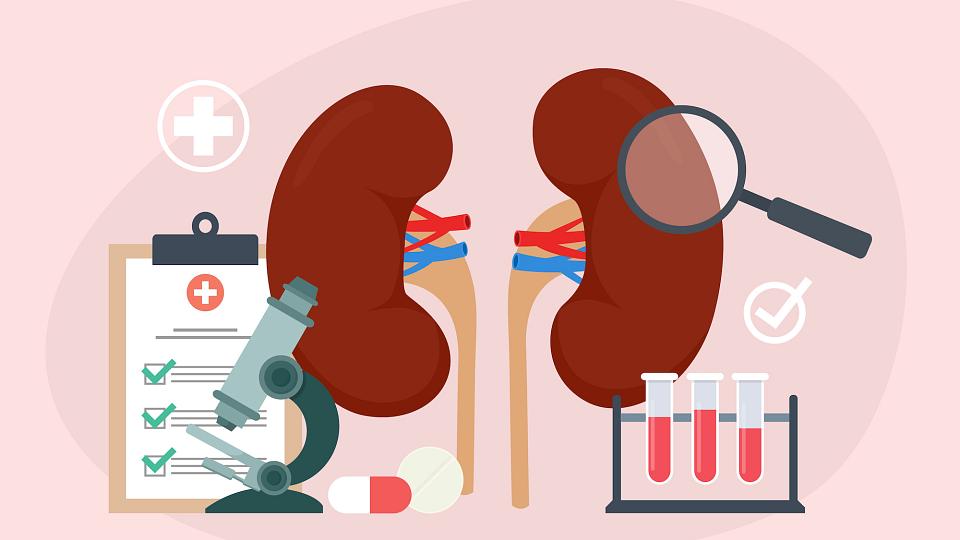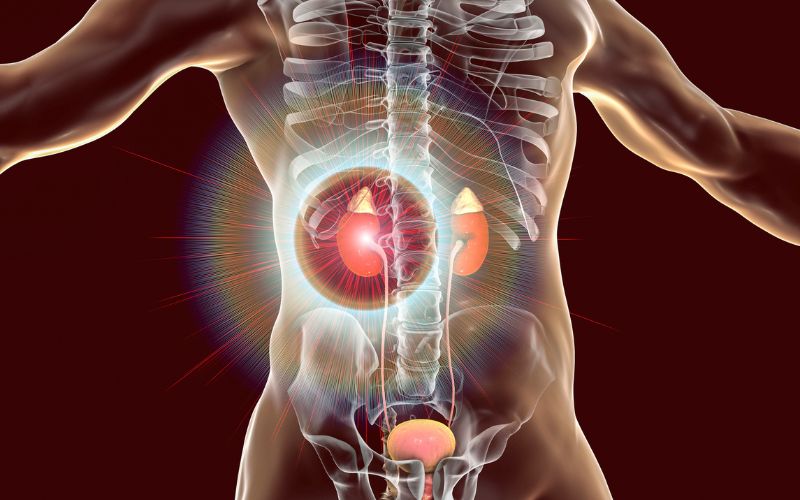What is Diabetic kidney? 5 Symptoms to look out for Diabetic Kidney.
Diabetes causes diabetic kidney disease, which is a kind of kidney disease. Diabetes is the most common cause of renal disease. One in every three diabetic adults has kidney disease. The kidneys' primary function is to filter wastes and excess water from your blood in order to produce urine. Your kidneys also assist control blood pressure and produce hormones that your body requires to function properly. When your kidneys are damaged, they are unable to filter blood as well as they should, allowing wastes to accumulate in your body. Kidney disease might also lead to other health issues. Diabetes normally causes kidney damage over a long period of time. You can protect your kidneys and avoid or postpone kidney disease.
What are other names for diabetic kidney disease?
Diabetic kidney disease is also called DKD, chronic kidney disease, CKD, kidney disease of diabetes, or diabetic nephropathy.
5 symptoms of Diabetic Kidney
Diabetic kidney disease, also known as diabetic nephropathy, is a kind of kidney disease induced by diabetes. It's a highly common diabetic complication that affects roughly one-third of persons with type 1 diabetes and half of those with type 2 diabetes. The majority of the extra mortality linked with diabetes is due to kidney dysfunction. Because the kidneys eliminate metabolic waste, regulate blood pH, maintain fluid and electrolyte balance, and generate. Several hormones are lost, resulting in toxic waste accumulation, electrolyte imbalances, and a variety of other health concerns. The condition progresses gradually over time. When a person progresses from renal insufficiency to end-stage renal failure, the early loss of renal tissue often causes no symptoms. Symptoms often arise when a large amount of kidney function has already been gone. The ability to concentrate urine is frequently the first to deteriorate, resulting in numerous trips to the bathroom, particularly at night. Other early indicators include exhaustion, lack of appetite, and decreased mental function. Chronically high blood glucose levels in conjunction with high blood pressure. Diabetes is to blame. Make small blood suffer. Vessels in the kidneys altering their functionality, cellular deterioration in the kidney's functional components The parasites of renal glomeruli, particularly nephrons, contribute to the deterioration of renal functioning.
Diabetes, particularly when inadequately managed, is the leading cause of chronic renal damage. Other risk factors for high blood pressure include smoking, having a high cholesterol level, and being overweight. Because the first loss of kidney tissue causes no symptoms. Diabetic people should have their kidney functioning tested annually. Typical tests include blood and urine analyses. Controlling blood sugar levels, blood pressure, and cholesterol levels are all prevention and management techniques that can be accomplished by a mix of lifestyle changes and drugs. A balanced diet with reduced salt, increased intake, physical exercise, weight management, and smoking cessation are typical lifestyle strategies. ACE inhibitors and Angiotensin receptor blockers, which block the renin-angiotensin-aldosterone system, perform best to protect kidney functions against end stage kidney disease, which requires dialysis or kidney transplantation.
Early stages of kidney disease are frequently devoid of symptoms. You may not notice any symptoms until the end stages of chronic renal disease.
ESRD symptoms may include:
-
Weariness general feeling of being sick
-
Appetite loss
-
Headache
-
Skin that is uncomfortable and dry
-
Nausea or vomiting swollen arms and legs
Each of your kidneys has approximately one million nephrons. Nephrons are tiny structures in your kidneys that filter waste from your blood. Diabetes can cause nephrons to grow and scar, making them less effective at filtering waste and removing fluid from the body. This causes them to leak albumin, a type of protein, into your urine. Albumin levels can be evaluated to aid in the diagnosis and progression of diabetic nephropathy.
The specific cause of diabetic nephropathy is unknown, however high blood sugar levels and high blood pressure are considered to contribute to the condition. Consistently high blood sugar or blood pressure levels can harm your kidneys, rendering them unable to filter waste and eliminate water from your body.
Other factors that have been linked to an increased risk of diabetic nephropathy include:
-
Being African-American, Hispanic, or Native American
-
Having a kidney illness family history
-
Getting type 1 diabetes before the age of 20
-
Smoking
-
Being obese or overweight
-
Experiencing further diabetes problems such as eye disease or nerve damage
FOR ANY QUERIES/ TO FIX AN APPOINTMENT — Contact us













Request A Callback